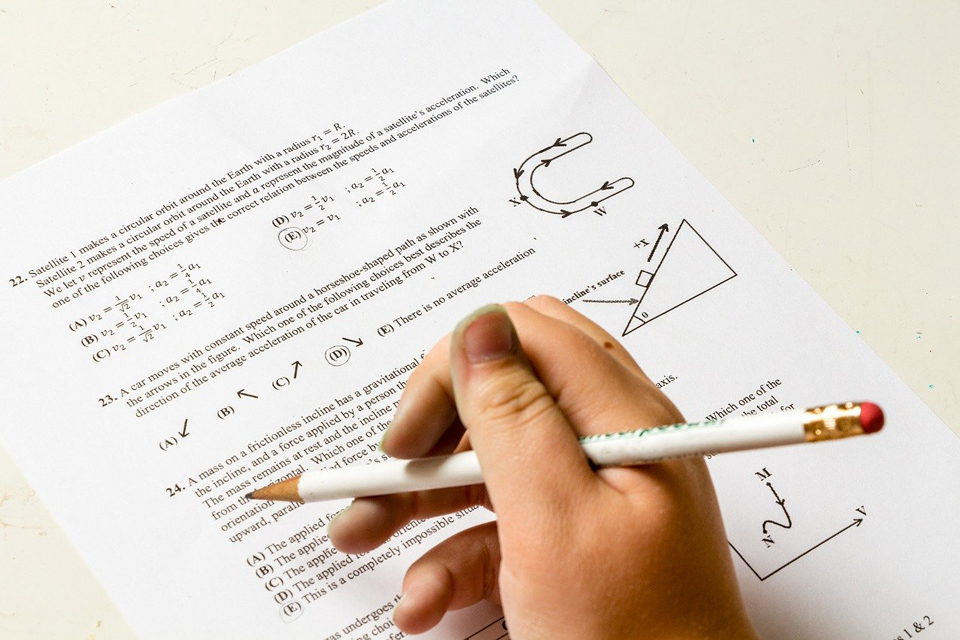In a year that’s seen the terms ‘lockdown,’ ‘social distancing’ and ’PPE’ added to the common lexicon it might be tempting to view the cancellation of exams as a manageable, if frustrating, event without any long-term consequences (particularly when candidates are likely to be awarded grades without the need for exams anyway). But for our children with High Learning Potential (HLP) – and home educated children in particular – issues remain.
The most immediate impact for all children, regardless of whether they were due to take exams or not, has been traumatic change. Whether children have been working through the school system, or whether they were already home educated, Covid-19 has brought about the premature and immediate end of the school year and has introduced uncertainty into children’s progression. School pupils have been unable to properly end their current year (in the case of those in Years 11 and 13, the end of important stages in their lives, and the inability to properly say goodbye to friends and teachers), while even those home educated have found themselves unable to finish face to face tutoring sessions or visit friends. All this adds up to anxiety, especially in children who are DME* learners.
Many of our children were due to have taken exams this year. There has been some concern about how best to ensure that children won’t be prejudiced by the cancellation of those exams, and to ensure that children will be able to progress to the next stage of education, or into employment (or any other stage).
Home educated children learn in all sorts of ways. Some follow a routine, some don’t. Some follow the National Curriculum, some don’t. Some use tutors or groups or distance learning providers, some don’t. Ofqual, the government department that regulates qualifications, examinations and assessments in England, is proposing that, in place of exams, grades should be awarded on a more holistic basis: exam centres should look at prior performance, mock results, homework and non-exam assessment. However, for home educated children, particularly those who self-study like my own daughter, those things are in many cases simply not available. The latest consultation paper from Ofqual devotes a large section to this, noting that some private candidates “will have no existing association with an exam centre that would enable [the exam centre] to issue a centre assessment grade or include them in the centre’s rank order.” One possible solution, it states, may have been for exam centres to accept evidence from private tutors or parents, but it then goes on to suggest that this may not be possible because “the professional judgements which will be made by schools and colleges…will be informed by their experience of each student in comparison with a broad range of their peers, in the current cohort and in previous cohorts,” (my emphasis). Private tutors and parents will simply not have that context, and that will “inevitably affect the reliability” of any grades. In addition, Ofqual is concerned that tutors and parents will “necessarily be subject, however unconsciously” to bias and pressure from parents and children, something which the consultation paper is at pains to try to avoid in relation to exam centres (going so far as to prohibit centres from even discussing their grades or methodology with candidates or their parents).
So, what happens to private candidates who cannot produce the necessary evidence? Well, Ofqual suggests that they will simply have to sit exams in the next session which is currently expected to be this Autumn. For those children who need the results to progress to the next stage (for example, my own daughter, who has been home educated since she was 8 years old and has a conditional offer to start at sixth form college in September), that would lead to a distinct disadvantage: yes, it’s possible that the college may be prepared to allow her to start subject to the results of those exams, but they may not; yes, they might relax their entry criteria, but they might not; if she has to sit GCSEs at the same time as starting her A-Levels that by necessity impacts on how well she’s able to do either.
Another issue which disproportionally affects HLP children is age. Ofqual had originally said that only Year 11 and Year 13 children would receive calculated grades. Those children entered for exams in other years would not, on the basis that any delay would not impact on them. Many of our children do of course take exams early, and while the intention of freeing up time (for centres, schools, boards and regulators) to ensure that those who needed the exams to progress could do so was laudable, doing that at the expense of those who had been preparing for exams but who were deemed too young was not. As it happens, there seems to have been a U-turn on this, and the consultation paper now suggests that all candidates, regardless of age, will receive calculated grades. That remains subject to consultation, however.
One further issue is standardisation and ranking. Many of you will be familiar with the notion that a child’s initial grade for an exam is not necessarily the one that they’ll eventually be awarded. All exam results are subject to standardisation, a statistical process designed to take account of a number of factors, including different exam papers (where the number of questions and the time allowed for them can differ); different marking methodologies from exam board to exam board; different exam centres (which may be more or less lenient than others); and so on. The aim is to ensure that the approach to setting and marking exams should be standardised across all exam boards and exam centres, and that individual candidates aren’t at the whim of a kind of postcode lottery. Ranking is the process by which exam centres rank the order of each student at each grade in each subject in that centre (in other words, taking the raw score from each exam and creating a normal distribution and standard deviation). That informs grade boundaries, and therefore directly impacts on the likelihood of any one candidate receiving a particular grade.
In relation to standardisation, the present situation is (and I’m aware that it’s an overused word, but it does apply here) unprecedented, and neither exam boards nor the regulators really know how best to apply standardisation here. It won’t, says Ofqual, be possible to standardise the process by which exam centres make judgements about grades before those grades are submitted to exam boards, so it will be down to exam boards to ensure that any inconsistencies in marking are corrected. How they go about doing that is subject to consultation. The risk, for HLP and/or home educated children, is that prior attainment may be either unavailable or a poor indicator of likely performance this year, and using the expected national grade distribution may not take into account the unique nature of either HLP or home education.
There has also been some discussion about the possible impact on home educated candidates on centre ranking. There is, argue some, the potential for bias on the part of exam centres, favouring their own home grown candidates over any external private candidates, as well as attempting to fit an atypical cohort (home educated candidates) into a standard distribution that caters mainly for those educated in a school setting.
Ofqual suggest that private candidates should contact their exam centre in the first instance, and then the exam boards directly, to see what their individual requirements might be. Which suggests that different centres, and different boards, may have different requirements. Some may be more lenient, some more stringent. We have already seen anecdotal evidence that at least one exam centre has decided to unilaterally remove all candidates who would not be in year 11, whilst another has indicated that age is irrelevant and that “something in writing from a tutor will probably be fine.” In advance of the consultation period ending, there is already a healthy market for private tutors to gather evidence.
The consultation covers a number of areas, and these include:
- how exam centres should go about assessing candidates (what evidence will be acceptable, what information should be made available to exam boards and regulators, whether candidates should have access to an exam centre’s methodology and whether centre assessments should be capable of investigation for malpractice
- which candidates should or should not be included in calculated assessments (should private candidates be graded, should those not in Years 11 and 13 be graded)
- whether heads of centre should make a declaration about the accuracy and integrity of the judgements being submitted to exam boards (including equality impact)
- how to deal with standardisation and ranking
- what the appeals process should be.
It is, of course, important to ensure that whatever system replaces exams this year is fair. No one could possibly argue that the eventual results should be in any way different from what they would have been had Covid-19 not put a spanner in the works, and Ofqual is right to be concerned about any possible exploitation by schools or candidates. But the potential for unfairness remains high. Potential Plus UK will be responding to the consultation and will be approaching members shortly via survey monkey to obtain your thoughts and concerns for our formal response. In the meantime, I would encourage everyone to respond to the consultation directly here as well (you don’t need to answer all the questions). The consultation period ends on 29 April.
*DME – Dual or Multiple Exceptionality. This term is used to describe those who have one or more special educational need or disability combined with high learning potential.
About the author: Michael Speranza is a trustee for Potential Plus UK. He is a senior finance lawyer with more that 20 years’ experience. He is currently working freelance as a senior consultant solicitor and working with several different legal firms. He and his wife have home educated their daughter since she was eight years old.






